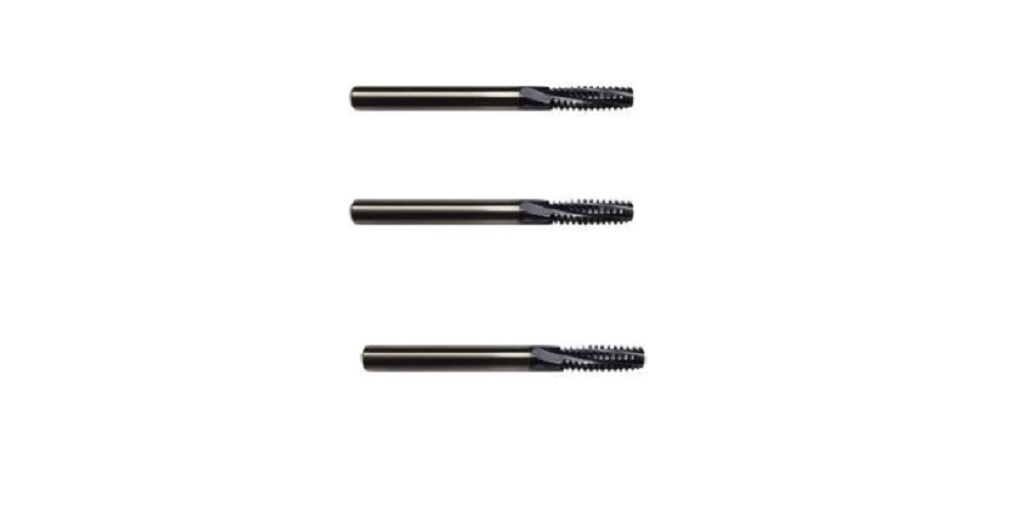National pipe tapered threads are the most common type of thread you will find for water and gas piping applications, especially in low-pressure environments.
If you have a milling machine, chances are you´re already crafting complex machine parts that require tight fastening and watertight joints. Contraptions that work with fluids or gasses must comply with minimum thread standards to ensure both reliability and durability while preventing undesirable (or dangerous) leakages.
When machining pipes, hose heads, or connectors intended to be plugged into a regular water or gas source and remain stationary, your go-to tool should be a carbide thread NPT cutter. It is the industry standard in America, allowing for greater mobility, or maybe save a few bucks on parts by using regular connectors from your local hardware store.
NPT does not have a great rep, though. This comes from the fact that most threads were made by tapping instead of milling, creating a wedging action between the root and the crest of the thread that left a leak path. For a long time, NPT pipes were a bad choice when dealing with high pressure, temperature changes, or flammable fluids. Even when dealing with non-solvents or normal pressures, you had to take a lot of precautions when joining NPT male and female parts to make sure the fittings engaged efficiently. For example, for regular NPT hosing we are used to covering the male part with polytetrafluoroethylene tape, or Teflon, to prevent leakages.
To solve this, NPTF, or National Pipe Tapered Fuel dryseal thread, was created. It is almost identical to the NPT as both have a thread pitch of 60°. However, these threads were milled, ensuring a metal-to-metal seal without leaving a leakage path. The fittings engage perfectly and there is no need for additional sealant.
However, the introduction of carbide thread NPT cutters for milling has greatly improved the quality of the threads you can create, especially when machining through expensive or challenging materials that are resistant to tapping. Depending on the part or design, you might need to punch through a lot of material while creating thread intended to match regular NPT connectors, so you need a cutting tool that can resist the heat and the punishment.
If you´re used to tapping, you might be tempted to punch through your piece and tap your thread in one pass. However, since threading is usually the last stage of machining, one error at this point might cause you to rework or scrap the piece altogether. Dense materials tend to redirect the heat into the tap, causing higher wear rates and chatter. So, tapping is never recommended when machining high-temperature alloys, or at least not when you have to go through a lot of material to create threaded fluid or gas paths.
Milling is the clear choice when you need leak-proof threading since it allows for greater heat control. The surface of a carbide thread NPT cutter is only partially engaged with the material, allowing for more cooling time and control on each pass, preventing chatter or warping. They also allow for more precision, meaning that it is possible to completely seal leak paths along the thread for a perfect metal-to-metal seal.
If you are looking for high precision thread milling, a solid carbide thread mill NPT cutter is all you need for watertight connectors and pipes. Visit www.onlinecarbide.com. They specialize in manufacturing solid and coated carbide end mills and drill bits. If you have any questions about their tools or you are interested in having cutters custom-made for your shop, you can reach out directly to the Online Carbide team by sending an email to [email protected].



